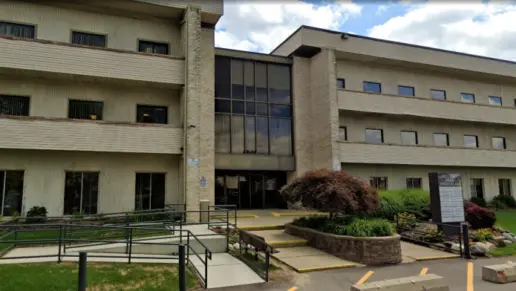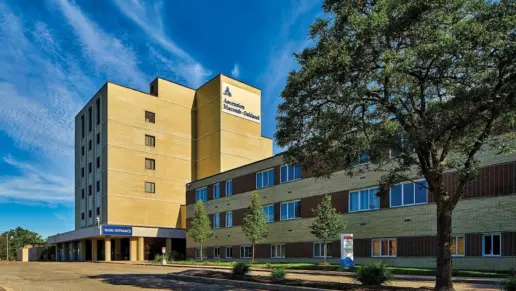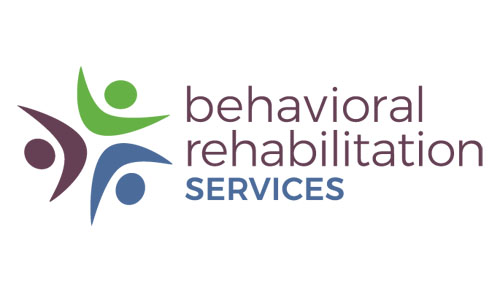About Dawn Farm
Dawn Farm is a long term substance abuse and co occurring mental health treatment facility in Ypsilanti, Michigan. They have an integrated treatment model that makes it easy for guests to transition to different programs. Dawn Farm also provides transitional housing to continue with long term recovery support. Alongside traditional therapeutic methods Dawn Farm provides holistic treatment like art therapy that enhances communication and self expression. They offer GED prep for those wanting to finish their high school studies and family services to help mend or improve relationships with loved ones.
The average stay at the 64 acre farm is 3 to 4 months. You’ll experience a rural setting with chickens, pigs, cows, and an organic garden. Guests have an environment that encourages recovery and allows exercise to keep them engaged and working with others. You can work with the animals and help with meals or assist with laundry services. The team wants to help you find a productive place within your community for meaningful sustained recovery.
Dawn Farm is LGBTQ friendly and allows trans and nonbinary guests to decide their sleeping arrangements. The sleeping is gender specific but your intake team will help you with the accommodations that make you most comfortable.
They encourage local 12 step meeting attendance, where you’ll find a community of people working toward sobriety. You can find a sponsor and service work that helps others in local or surrounding areas. Since Ypsilanti is filled with shops owned by local residents you won’t have a problem adding value to the community through your work efforts.
They include a six month aftercare program and offer transitional housing opportunities after treatment where you can live for up to two years. Dawn Farms wants guests to build a recovery support system that lasts after they finish treatment services.
Latest Reviews
Rehab Score
Gallery

Location
Other Forms of Payment
Self-pay involves paying for treatment out of your own pocket. You can use savings or credit, get a personal loan, or receive help from family and friends to fund your treatment. If you don't have insurance or your insurance plan doesn't cover a specific program, self-pay can help ensure you still get the care you need.
Financial aid can take many forms. Centers may have grants or scholarships available to clients who meet eligibility requirements. Programs that receive SAMHSA grants may have financial aid available for those who need treatment as well. Grants and scholarships can help you pai for treatment without having to repay.
Medicaid is a state based program that helps lower-income individuals and families pay for healthcare. Medicaid covers addiction treatment so those enrolled can use their coverage to pay for rehab. When a program accepts Medicaid the client often pays very little or nothing out of their own pocket.
Addiction Treatments
Levels of Care
Treatments
The goal of treatment for alcoholism is abstinence. Those with poor social support, poor motivation, or psychiatric disorders tend to relapse within a few years of treatment. For these people, success is measured by longer periods of abstinence, reduced use of alcohol, better health, and improved social functioning. Recovery and Maintenance are usually based on 12 step programs and AA meetings.
Drug rehab in Michigan provides personalized treatment to help individuals break this cycle and regain control of their lives. Treatment methods are used in various levels of care, including inpatient rehab, partial hospitalization programs, intensive outpatient programs, and standard outpatient treatment.
Many of those suffering from addiction also suffer from mental or emotional illnesses like schizophrenia, bipolar disorder, depression, or anxiety disorders. Rehab and other substance abuse facilities treating those with a dual diagnosis or co-occurring disorder administer psychiatric treatment to address the person's mental health issue in addition to drug and alcohol rehabilitation.
Opioid rehabs specialize in supporting those recovering from opioid addiction. They treat those suffering from addiction to illegal opioids like heroin, as well as prescription drugs like oxycodone. These centers typically combine both physical as well as mental and emotional support to help stop addiction. Physical support often includes medical detox and subsequent medical support (including medication), and mental support includes in-depth therapy to address the underlying causes of addiction.
Substance rehabs focus on helping individuals recover from substance abuse, including alcohol and drug addiction (both illegal and prescription drugs). They often include the opportunity to engage in both individual as well as group therapy.
Programs


Clinical Services
Animal therapy (aka pet therapy or animal-assisted therapy) can be very healing, as it allows patients to bond with animals, who give unconditional love. This is particularly useful for those who suffered trauma by the hands of people, who may be able to trust and form closer attachments to animals than humans at certain stages of rehabilitation.
Cognitive Behavioral Therapy (CBT) is a therapy modality that focuses on the relationship between one's thoughts, feelings, and behaviors. It is used to establish and allow for healthy responses to thoughts and feelings (instead of unhealthy responses, like using drugs or alcohol). CBT has been proven effective for recovering addicts of all kinds, and is used to strengthen a patient's own self-awareness and ability to self-regulate. CBT allows individuals to monitor their own emotional state, become more adept at communicating with others, and manage stress without needing to engage in substance abuse.
Creativity is inherently healing, and can help those in recovery express thoughts or feelings they might not otherwise be able to. Creative arts therapy can include music, poetry/writing, painting, sculpting, dance, theater, sandplay, and more. Unlike traditional art, the final product matters far less than the experience of creation and expression itself.
Dialectical Behavior Therapy (DBT) is a modified form of Cognitive Behavioral Therapy (CBT), a treatment designed to help people understand and ultimately affect the relationship between their thoughts, feelings, and behaviors. DBT is often used for individuals who struggle with self-harm behaviors, such as self-mutilation (cutting) and suicidal thoughts, urges, or attempts. It has been proven clinically effective for those who struggle with out-of-control emotions and mental health illnesses like Borderline Personality Disorder.
Experiential therapy is a form of therapy in which clients are encouraged to surface and work through subconscious issues by engaging in real-time experiences. Experiential therapy departs from traditional talk therapy by involving the body, and having clients engage in activities, movements, and physical and emotional expression. This can involve role-play or using props (which can include other people). Experiential therapy can help people process trauma, memories, and emotion quickly, deeply, and in a lasting fashion, leading to substantial and impactful healing.
EMDR is a therapeutic modality originally developed to help process trauma. In an EMDR session, a patient is prompted to undergo eye movements that mimic those of REM sleep. Dawn Farm provides clients with trauma symptoms access to clinical specialists trained in eye movement desensitization and reprocessing (EMDR) therapy. Clinicians practicing EMDR at Dawn Farm have completed EMDR Institute approved training in EMDR, and have received clinical consultation by EMDR Institute approved trainers.
Family Matters is a free ongoing program providing education and support for loved ones of addicts and alcoholics. Participating in Dawn Farm’s Family Matters group can make a powerful contribution to the process of recovery and of rebuilding relationships. You can take part in Dawn Farm’s Family Matters group even if your loved one is not currently in treatment. Topics include: Addiction 101; Treatment & 12 Steps; Relapse & Recovery; Communication; Family Dynamics; Boundaries & Codependency.
Group therapy is any therapeutic work that happens in a group (not one-on-one). Several group therapy options are offered that are designed to help clients with varying needs, levels of motivation and intensity of substance use problems. Groups range in duration from 8 to 48 weeks depending upon client needs and preferences. Discovery groups – These groups are motivational in nature and are designed for clients that have not been clearly identified as an addict or alcoholic. Recovery groups – Designed for clients who are clearly identified as substance dependent. Objectives include educating clients about the processes of addiction and recovery, the fun- damentals of AA and 12 step recovery and developing and implementing a recovery plan.
In individual therapy, a patient meets one-on-one with a trained psychologist or counselor. Individual therapy is offered independently or in addition to group therapy. The appropriate duration, intensity and direction of therapy is determined on an individual basis.
Life skills trainings involve all the skills a person must have in order to function successfully in the world. These include time management, career guidance, money management, and effective communication. Truly successful addiction recovery is based on the ability to not only live substance-free, but to thrive. Life skills teaches the practical necessities of functioning in society, which sets clients up for success in life, and therefore sobriety.
Trauma therapy addresses traumatic incidents from a client's past that are likely affecting their present-day experience. Trauma is often one of the primary triggers and potential causes of addiction, and can stem from child sexual abuse, domestic violence, having a parent with a mental illness, losing one or both parents at a young age, teenage or adult sexual assault, or any number of other factors. The purpose of trauma therapy is to allow a patient to process trauma and move through and past it, with the help of trained and compassionate mental health professionals.
Amenities
-
Private Setting
-
Hiking
Accreditations

The Commission on Accreditation of Rehabilitation Facilities (CARF) is a non-profit organization that specifically accredits rehab organizations. Founded in 1966, CARF's, mission is to help service providers like rehab facilities maintain high standards of care.
CARF Accreditation: Yes
Contact Information
6633 Stony Creek Road
Ypsilanti, MI 48197


